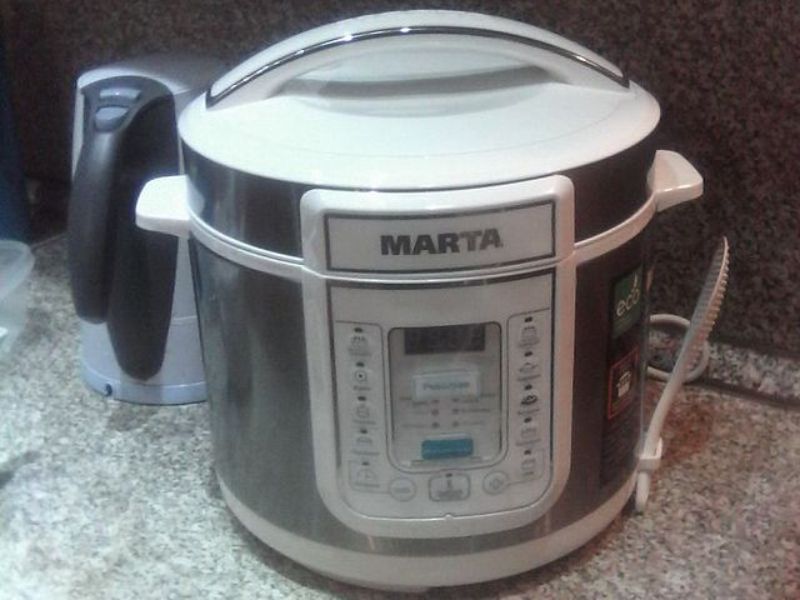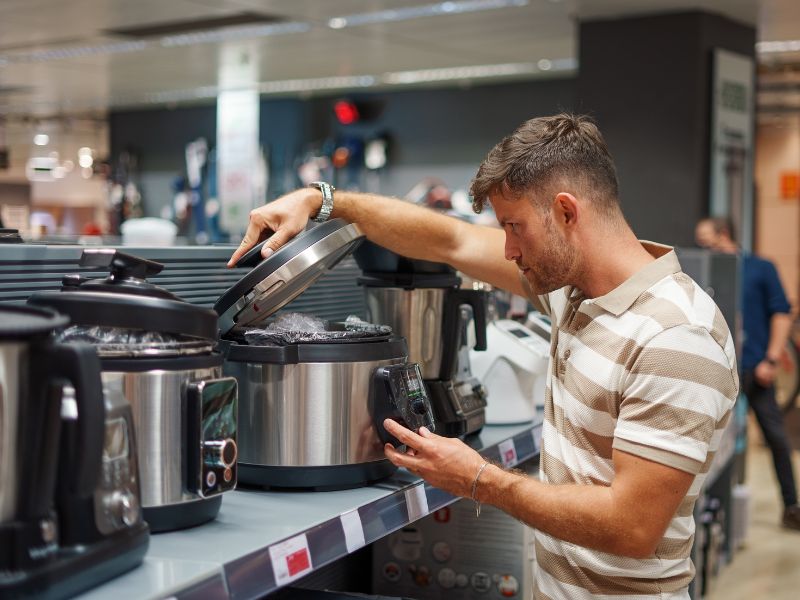Multicookers have revolutionized home cooking, offering convenience and versatility in preparing various dishes. However, improper use can lead to serious safety hazards. Food safety experts highlight six common multicooker mistakes that users should know to ensure safe and enjoyable cooking experiences.
Overfilling The Pot
One of the most common mistakes is overfilling the multicooker pot. Overloading can lead to insufficient cooking and uneven heating, resulting in undercooked or unsafe food. Following manufacturer guidelines regarding maximum fill levels is recommended to ensure proper cooking and food safety.

Image Credit: Tucvbif, CC BY-SA 4.0, via Wikimedia Commons
Neglecting Ventilation
Multicookers come equipped with safety features like pressure release valves and steam vents. Neglecting these mechanisms can lead to dangerous pressure build-up, potentially causing the lid to become challenging to open or even leading to accidents. Regularly inspecting and cleaning these components is crucial to prevent mishaps.
Incorrect Sealing
Proper sealing is paramount for multicooker operation, especially when using pressure cooking functions. Failing to seal the pot correctly can result in a loss of pressure, leading to undercooked food. Users should ensure the sealing ring is fitted correctly and the valve is perfectly positioned before cooking.
Rapid Release Of Pressure
Rapidly releasing pressure after cooking without allowing for a natural depressurization period can be highly hazardous. It can lead to hot steam and liquid forcefully venting out of the cooker, potentially causing burns or scalds. Following recommended release methods and allowing time for natural depressurization is crucial for safety.

Image Credit: Shutterstock/Kardasovfilms
While multicookers offer convenience, they do not exempt users from basic food safety practices. It’s essential to follow guidelines for food preparation, including proper handling, storage, and defrosting. Neglecting these practices can lead to foodborne illnesses.